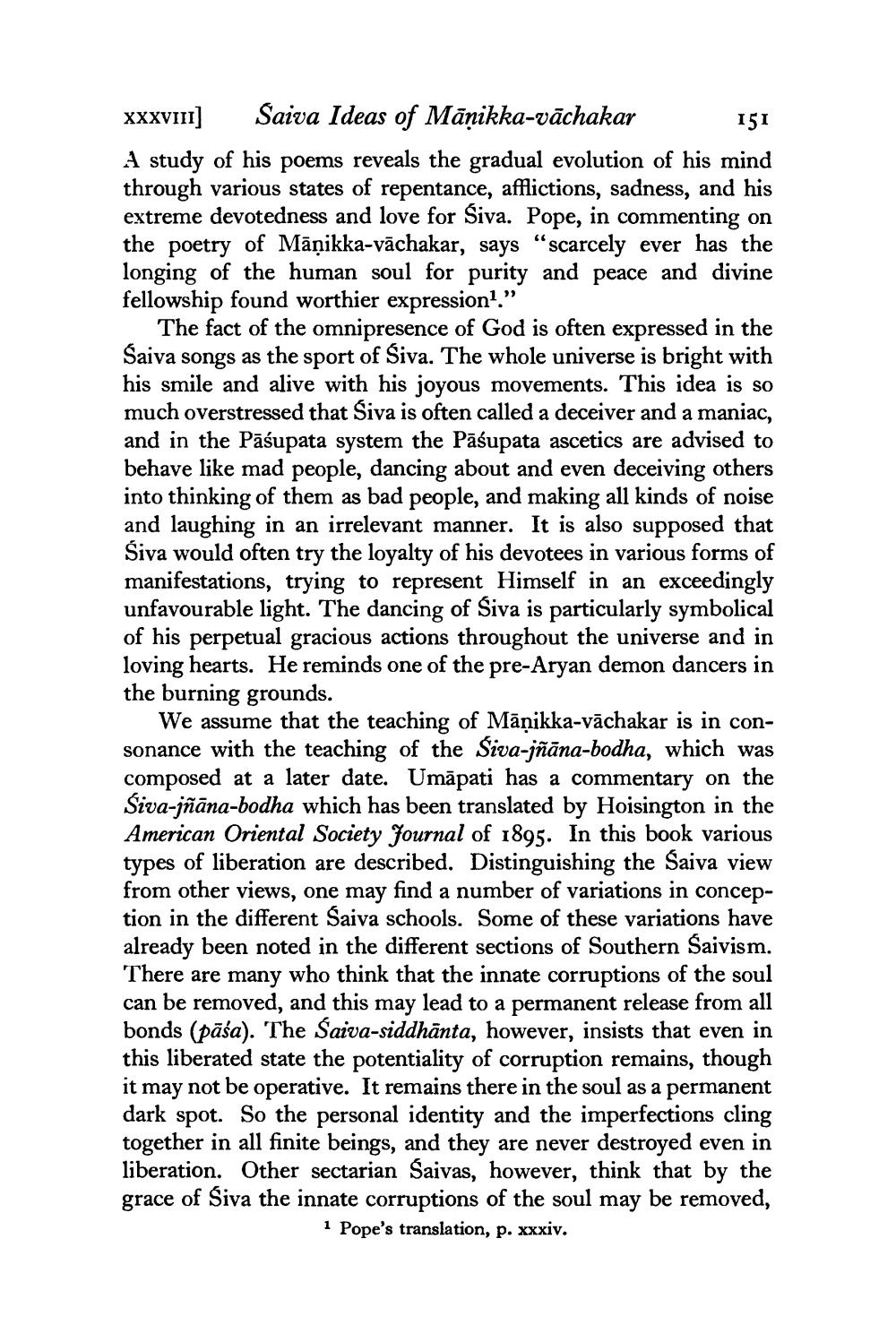________________
XXXVIII] Saiva Ideas of Māņikka-vāchakar 151 A study of his poems reveals the gradual evolution of his mind through various states of repentance, afflictions, sadness, and his extreme devotedness and love for Siva. Pope, in commenting on the poetry of Māņikka-vāchakar, says “scarcely ever has the longing of the human soul for purity and peace and divine fellowship found worthier expression?.”
The fact of the omnipresence of God is often expressed in the Saiva songs as the sport of Siva. The whole universe is bright with his smile and alive with his joyous movements. This idea is so much overstressed that Siva is often called a deceiver and a maniac, and in the Pāśupata system the Pāśupata ascetics are advised to behave like mad people, dancing about and even deceiving others into thinking of them as bad people, and making all kinds of noise and laughing in an irrelevant manner. It is also supposed that Śiva would often try the loyalty of his devotees in various forms of manifestations, trying to represent Himself in an exceedingly unfavourable light. The dancing of Siva is particularly symbolical of his perpetual gracious actions throughout the universe and in
ving hearts. He reminds one of the pre-Aryan demon dancers in the burning grounds.
We assume that the teaching of Māņikka-vāchakar is in consonance with the teaching of the Siva-jñāna-bodha, which was composed at a later date. Umāpati has a commentary on the Siva-jñāna-bodha which has been translated by Hoisington in the American Oriental Society Journal of 1895. In this book various types of liberation are described. Distinguishing the Saiva view from other views, one may find a number of variations in conception in the different Saiva schools. Some of these variations have already been noted in the different sections of Southern Saivism. There are many who think that the innate corruptions of the soul can be removed, and this may lead to a permanent release from all bonds (pāśa). The Saiva-siddhānta, however, insists that even in this liberated state the potentiality of corruption remains, though it may not be operative. It remains there in the soul as a permanent dark spot. So the personal identity and the imperfections cling together in all finite beings, and they are never destroyed even in liberation. Other sectarian Saivas, however, think that by the grace of Siva the innate corruptions of the soul may be removed,
1 Pope's translation, p. xxxiv.




